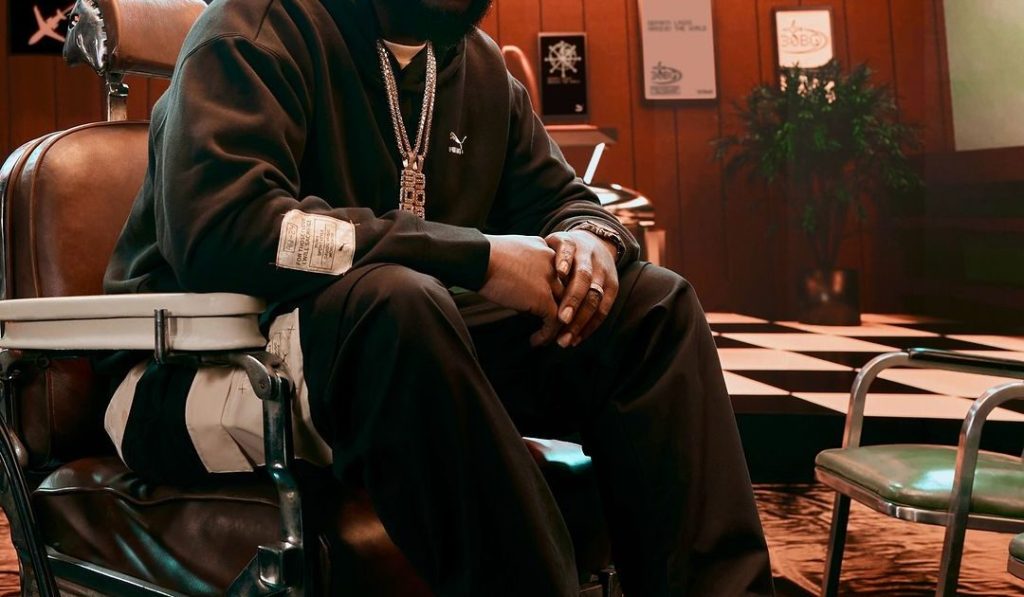Afrobeats superstar David Adeleke, widely known as Davido, has recently stirred controversy with his candid comments regarding Nigeria’s economic situation during an appearance on The Big Homies House podcast. In the interview, Davido candidly advised Black Americans against moving to Nigeria, highlighting significant concerns such as poor leadership, a depreciating exchange rate, and escalating oil prices. “It is not cool back home. The economy is in shambles,” he remarked, emphasizing the precarious state of affairs. His statement resonated with many listeners and rapidly gained traction online, sparking conversations about the realities of life in Nigeria and the challenges faced by its citizens.
Davido elaborated on the pressing issues impacting Nigeria’s economy, stating, “I am talking about the situation in the country. Now the exchange rate is messed up, a lot of stuff are not going well. The economy is just not good enough. The oil price is too high. Imagine the country that produces oil, paying more for it than a country importing oil.” His remarks paint a stark picture of economic hardship that many Nigerians endure, reflecting broader frustrations with governance and economic mismanagement. The discussion opened a window for greater scrutiny of Nigerian leadership and systemic issues that contribute to the struggles faced by the populace.
However, Davido’s remarks were met with substantial backlash from various sectors, including actors and television presenters who expressed that his comments could tarnish Nigeria’s international image. Akashat Ny’mat, a presenter on TVC, pointed out the potential ramifications of Davido’s statements, arguing that while they were based on truth, sharing such sentiments on a global platform was counterproductive, especially when the Nigerian government seeks foreign investments. Ny’mat asserted, “When the President takes a plane to a country to look for foreign investors, and a prominent figure like Davido says this, he is essentially telling them not to come.” Such criticisms underscored the balance celebrities must navigate between honest representation and national pride.
In response to the criticism, Davido took to social media, specifically the platform X (formerly Twitter), to defend himself and reaffirm his role as a genuine ambassador for Nigeria. He responded to the backlash with a defiant tone, declaring, “Lmao #tvcnewsng nah today? You all are mad ‘cus we the real ambassadors.” This response reflects Davido’s conviction that his comments, though controversial, were aimed at transparency and accountability regarding the socioeconomic issues plaguing Nigeria. He emphasized his commitment to being a truthful representative of his country, even acknowledging that he tends to avoid showcasing the country’s less appealing aspects while engaged in his professional endeavors.
Despite concerns that his comments might adversely affect his career prospects in Nigeria, Davido displayed an air of confidence regarding his position. He jokingly addressed rumors indicating that his shows could be canceled as a result of his interview, quipping, “Dem say dem go cancel my show cus of my interview… loooool I don’t have to perform in Nigeria.” This statement illustrates his sense of independence and willingness to speak candidly about the country’s plight, reflecting a growing trend among artists and public figures who are prioritizing authenticity over popularity.
Davido’s rise to fame, which began in 2012 with his hit single ‘Dami Duro’ from his debut album ‘Omo Baba Olowo,’ has established him as one of Africa’s most influential musical artists. His career has been marked by significant achievements, collaborations with international stars, and a loyal fanbase that resonates with his music. As such, his platform grants him a unique opportunity to address pressing issues affecting Nigeria. With his comments, Davido is pushing for a broader conversation about the economic challenges that not only affect him as an artist but also impact millions of Nigerians navigating the complexities of daily life in a struggling economy. His willingness to leverage his influence to discuss uncomfortable truths reflects a growing trend among African artists to engage with sociopolitical issues, further shaping the narrative of modern African music and culture.














